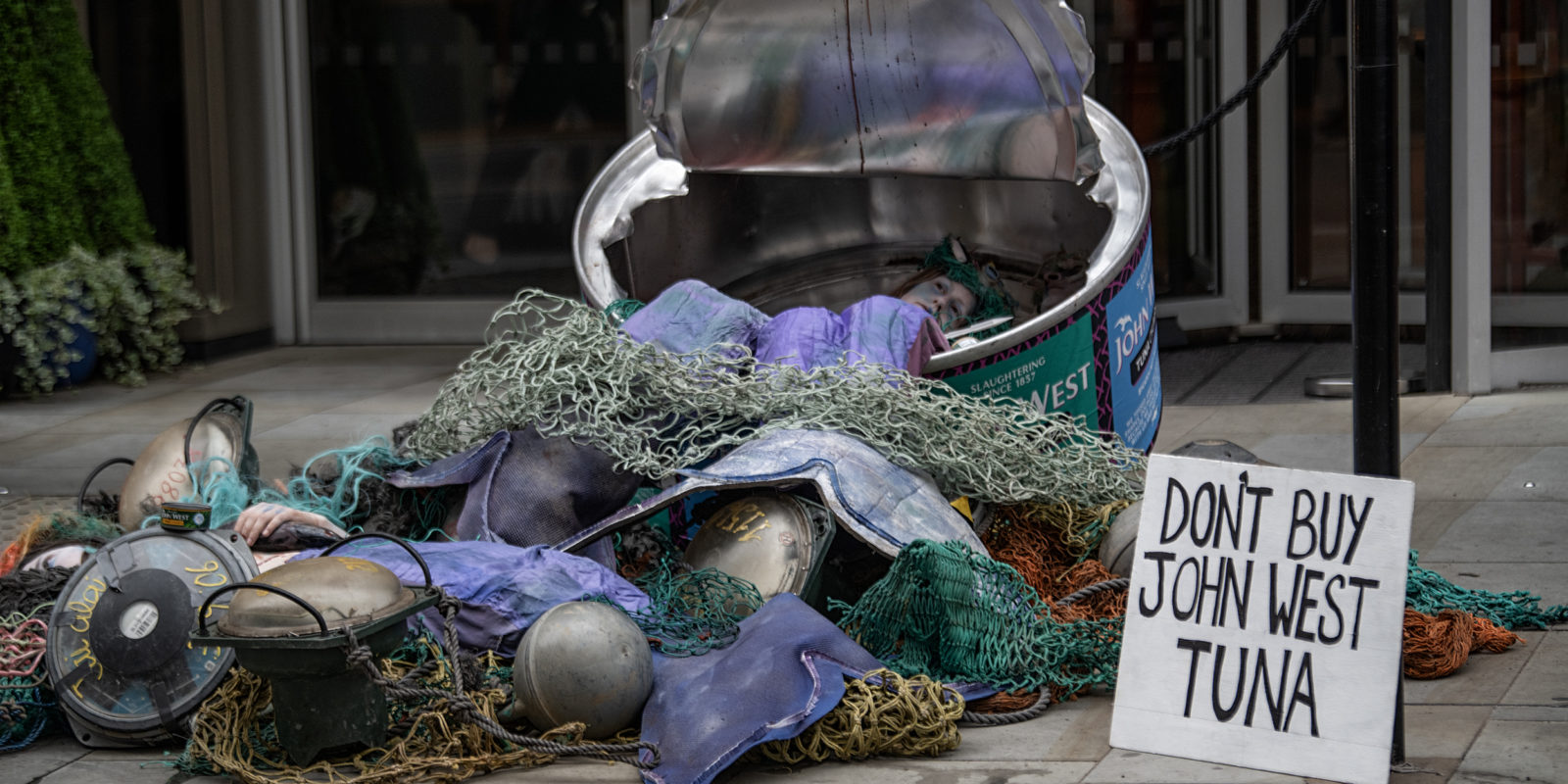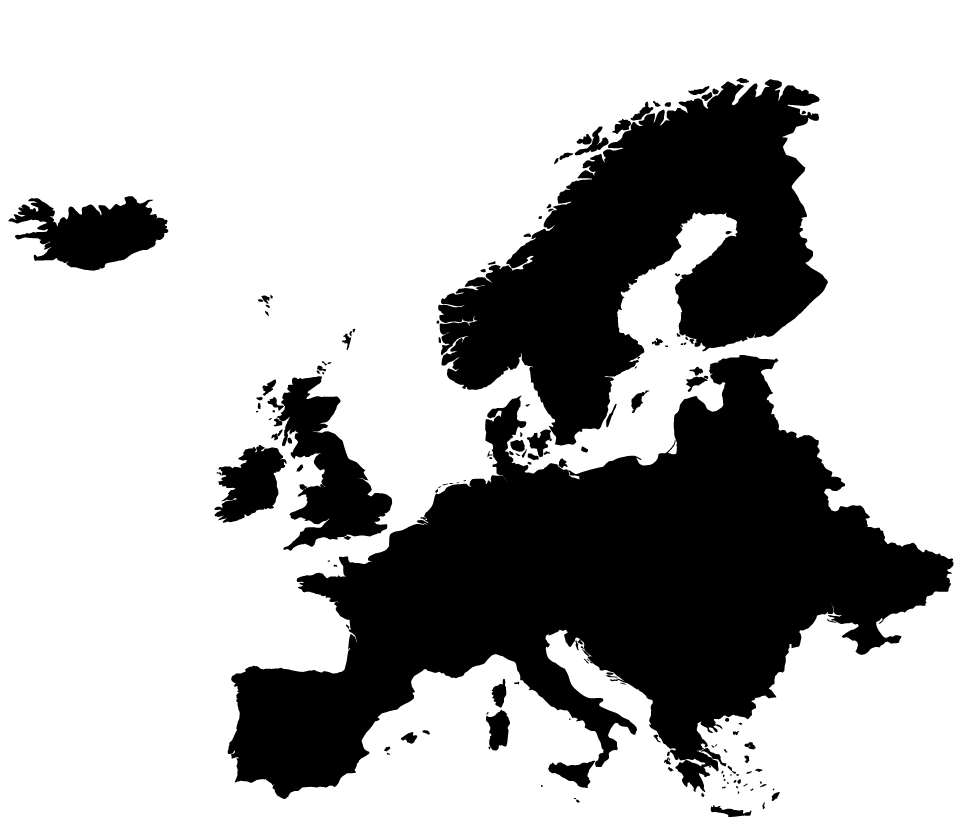The European Union’s fishing fleet uses drifting Fish Aggregating Devices (dFADs). The art collective Ocean Rebellion is taking action to put an end to industrial overfishing, which threatens the food security of small fishing communities in the Global South and the ocean’s biodiversity.

Lifting the Lid on Harmful Fishing Industries
ACTION · Lifting the Lid on Harmful Fishing Industries

Ocean Rebellion performs action stunts to end overfishing.
donate nowIn the middle of the ocean, nothing but a lone palm tree bark or an accumulation of plastic floats here and there. These are the landmarks for many migratory species like tuna, which cross entire oceans to mate. Fishermen exploit the need for landmarks by unleashing so-called FADs (Fish Aggregating Devices) on the ocean: huge floating nets with wooden poles attached to them that attract tuna, sharks, turtles and other species. An irresponsible fishing method that not only causes a lot of bycatch, but also fails to distinguish between adult and juvenile tuna, thus contributing to overfishing. In addition, stray or broken FADs can float into the territorial waters of other countries, or even sink and damage entire swaths of coral reef.
Sustainable fishing?
Fortunately, these last years we can eat tuna with more and more peace of mind. The annual report from the well-known MSC sustainable fish label reveals that a whopping 86 percent of canned tuna in supermarkets now has their stamp of approval, compared to only 22 percent in 2019. The MSC label has acquired a reputiation of being the leading label when it comes to fish, and it’s working. Research shows that consumers prefer fish that carries their blue logo.
Yet the absurdly rapid increase in sustainable tuna raised eyebrows among some experts. That is why, Bloom Association, an NGO dedicated to healthier oceans, set out to investigate this dazzling progress in sustainably caught tuna. Bloom discovered that more than half of the tuna with an MSC label was caught by fisheries using FADs. MSC simply changed the definitions of what is sustainable to include these harmful devices. MSC receives tremendous royalties from the lucrative tuna industry, but in return has abandoned its credibility.
Ocean Rebellion
To address the hypocrisy of MSC, supermarkets and the fishing industry, the British branch of Ocean Rebellion made an artistic intervention at the Blue Innovation Summit: a conference attended by the British DeFRa minister, and many key tuna industry players such as Thai Food Union, owner of John West tuna. Dressed as fish and canned tuna entangled in a FAD, the activists disrupted the conference and made the local and national press.
The action was a huge success, in part because insurers decided that Thai Food Union poses a higher investment risk now that people know the company is not living up to its sustainability goals. They raised Thai Food Union’s premiums as a result. Great news that has motivated activists to continue their campaign until FADs completely disappear from the surface of all oceans.
Het Actiefonds is proud to support Ocean Rebellion!
Support the project ‘ACTION · Lifting the Lid on Harmful Fishing Industries’ and donate
Make a donation
Support Het Actiefonds with 10 euros a month and make actions happen worldwide
donate now